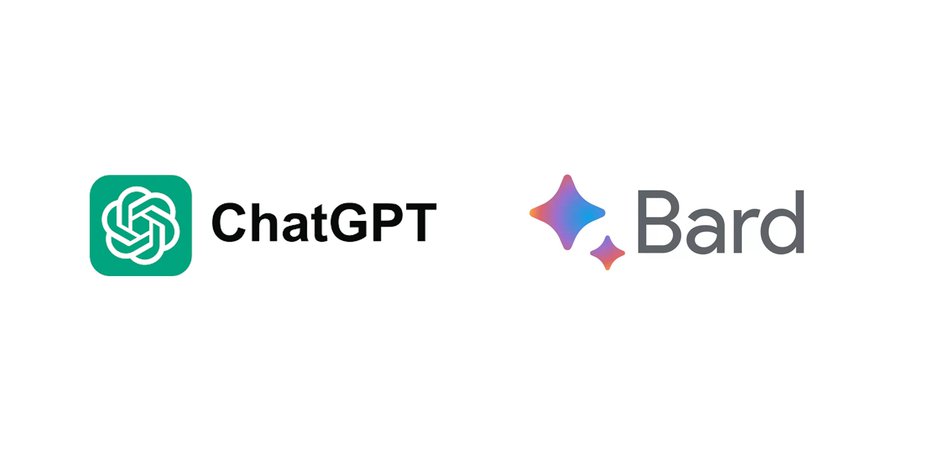
Written by Mahad Khan
Mahad Khan is a Certified Agile Practitioner currently working as a Senior Project Manager. Dedicated, team driven and most importantly passionate about providing the best experience to the customers. His ability to coordinate internal resources and vendors results in the flawless execution of projects. He believes every day you have an opportunity to improve, learn and explore new things in IT.
Artificial intelligence has made remarkable strides in recent years, and the development of powerful language models has opened up new possibilities in various domains. Among these models, OpenAI's ChatGPT and Bard have gained significant attention in the coding community. Programmers and developers increasingly use these AI tools to aid in their coding tasks. In this article, we'll explore the capabilities of ChatGPT and Bard and compare them to determine which is better suited for coding.
Code Generation: ChatGPT can generate code snippets based on natural language prompts. Developers can simply describe the functionality they need, and ChatGPT can produce code that matches their requirements.
Code Explanation: Understanding code is crucial for developers, especially when working with complex projects or unfamiliar codebases. ChatGPT can explain and clarify code segments, making it a valuable learning tool.
Debugging Support: ChatGPT can assist in identifying and fixing common coding errors. It can help developers troubleshoot their code and offer suggestions for improvement.
Coding Ideas: When developers encounter creative blocks or need suggestions for solving a coding problem, ChatGPT can offer ideas and alternative approaches.
Natural Language Interaction: ChatGPT's conversational interface allows developers to engage with it naturally and intuitively, making it easy to get coding assistance.
However, ChatGPT has its limitations, which include occasional code generation errors and a lack of context awareness.
Code Proficiency: Bard excels in generating code, understanding code-related queries, and offering detailed code explanations. It is optimized for coding tasks.
Context Awareness: Bard better understands the context of programming-related questions and can provide more accurate and relevant answers.
Error Handling: Bard can assist in identifying and fixing code errors, offering solutions that are often more precise and reliable than those from general-purpose language models.
Code Documentation: For developers seeking documentation or explanations of libraries, functions, or methods, Bard can provide detailed information and examples.
Integration: Bard can be integrated into code editors and development environments, offering real-time coding assistance while you write code.
Bard's primary focus on programming tasks makes it a strong contender for coding-related activities. However, it may not be as versatile as ChatGPT in non-programming contexts.
Code Generation:
ChatGPT: ChatGPT is proficient at generating code based on natural language descriptions. It can be particularly useful for quickly prototyping or generating code snippets.
Bard: Bard is designed specifically for code generation, making it more reliable for producing accurate, context-aware code.
Code Explanation:
ChatGPT: ChatGPT can provide explanations but may not always be as precise or contextually aware as Bard.
Bard: Bard excels in offering detailed code explanations, making it a valuable tool for learning and understanding programming concepts.
Error Handling:
ChatGPT: ChatGPT can help identify and fix code errors, but its solutions may not always be as accurate as Bard's.
Bard: Bard offers robust error-handling capabilities and can pinpoint coding issues more effectively.
Context Awareness:
ChatGPT: While ChatGPT can somewhat understand context, it may struggle with nuanced programming contexts.
Bard: Bard's specialized training makes it more contextually aware, allowing for better responses to programming queries.
Versatility:
ChatGPT: ChatGPT is versatile and can assist with various non-coding tasks, making it a more general-purpose tool.
Bard: Bard specializes in programming tasks and may not be as versatile in non-coding contexts.
Integration:
ChatGPT: Integrating ChatGPT into coding environments may require additional development effort.
Bard: Bard is designed for integration into code editors, offering real-time coding assistance.
However, if your primary focus is on programming and coding-related tasks, Bard is the more specialized and powerful choice. It offers accurate code generation, detailed explanations, and superior error-handling capabilities.
Ultimately, the "better" AI for coding depends on your preferences and requirements. Some developers may find value in ChatGPT and Bard, using them for different purposes within their coding workflow. Leveraging these AI models to enhance your productivity and coding proficiency is the key.
business,